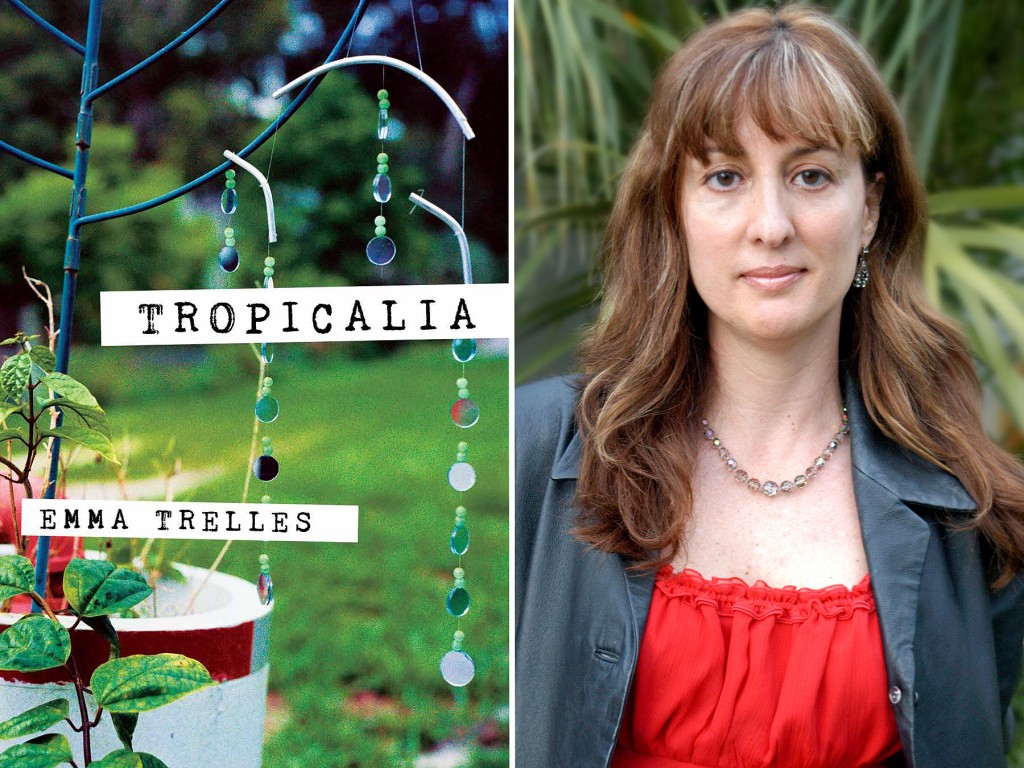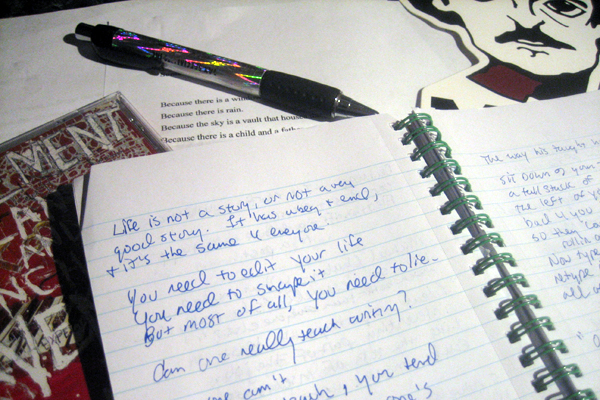
Emma Trelles
This year Emma Trelles won the Andres Montoya Poetry Prize for her forthcoming collection of poems Tropicalia (University of Notre Dame Press, 2011) and I can’t wait to get my copy. Silvia Curbelo, 2010 Andres Montoya Poetry Prize judge, wrote that Tropicalia’s “vast creative energy drew from many different sources to shape a new hybrid most strongly felt in music, but also visual and performance art, poetry, film, and fashion.”
I interviewed Trelles just before her wedding and spoke with her about Tropicalia and the future of poetry in Miami, which (should) include wide-open greens spaces with lush, green trees and a bike path! Emma Trelles is the author of Little Spells, a chapbook of poems published by GOSS183. Her work has appeared in publications such as Verse Daily, 3 AM Magazine, Oranges and Sardines, OCHO, Gulf Stream, Newsday, The Miami Herald, Latina Magazine, and The Sun- Sentinel, where she was the art critic for three years.
Neil de la Flor: Tell us about your new book Tropicalia.
Emma Trelles: The book is called Tropicalia and should be out early next year. It’s the fourth collection to win the prize since its inception in 2004, and I’m honored to be a part of the only first-book prize awarded solely to Latino writers in the U.S. It was selected by Silvia Curbelo, a poet who I had not met before the contest and whose work, and her unpretentious approach to poetics in general, I very much admire.
ND: What are the dominant themes of the book and what should we look for between the lines?
ET: Place, land, music, city, color, language—all of these appear in sundry forms. I’m a visual writer, but I wouldn’t want to tell readers what to see. Each time a new pair of eyes arrives at the page, the poem becomes more than it was, or less, depending on who’s reading it. That’s one of the things I love about poetry—the alchemy.
ND: I found a short film based on one of your poems here. Is this something you want to do more of? Ever thought about turning more of your poems into short films?
ET: I can’t take credit for that video. My friend Lee Anderson, a writer and visual art dabbler in New York, made that completely on his own. I sent him the audio, and he shot and edited the rest. It was fun collaborating with someone in that two-part, mystery kind of way. I had no idea what he’d come up with, and I liked learning what kind of of images flashed across his skull when he heard me read my own. I’d love to do more; the Poetry Foundation continually posts some great video poems on its site and About.com has a slew of links to more. Beats network television any day of the week.
ND: What’s the biggest challenge being a poet living in Miami? Biggest reward?
ET: Having to drive through an hour’s worth of traffic to get to a reading or to a great bookstore like Books and Books. But the physical beauty of South Florida is incomparable—the sky and light, the ocean, the countless waterways, the bright and plentiful birds. Anything can thrive down here. You could fling a tadpole into a gutter puddle and have a colony of frogs a week later. That kind of insistent life is inspiring, and as a poet, I like to document it. It’s my way of remembering.
ND: What motivates you, and what keeps you down?
ET: My fiancee Mark Zolezzi. He’s a book buyer and a musician and we’re each other’s most loyal fans. I go to his shows; he comes to my readings. When either one of us hits a creative dead zone. we nudge, or shove, one another through it.
ND: If you were a verb, which verb would you be and why?
ET: Galloping. I’m always running from one thing to the next.
ND: I’d like to know how you balance your creative writing with your professional writing for The Miami Herald and other newspapers and magazines?
ET: It’s not easy. I’m teaching more now because a) I like the interaction with the students and b) it gives my brain a break from freelance writing. I enjoy reporting on art and books, but writing about them uses the same juice I need for my creative work, and there’s only so much of it to go around. When I was a staff writer at a few newspapers, I wrote maybe a handful of poems a year. Since I left my last post a couple of years ago, I’ve finished two collections. I think I need to stay away from full-time journalism. Sometimes I dream about being a park ranger for the state, traversing preserves, protecting reptiles and roseate spoonbills, learning how to distinguish pickerelweed from water hyacinths. Heaven.
ND: I think I want to be a park ranger, too; but a park without reptiles! Greatest fear—writing- or nonwriting-related?
ET: I’m not a fan of palmetto bugs, especially the gangly, flying ones. You’d think I’d be used to them by now, after living in Florida for so long. I’m not.
ND: Last question, I promise: If you could come back in the year 2210, what would you expect or hope to see (or hear) from the literary community at large?
ET: More bookstores, please. A dozen Pulitzer and National Book Award winners. An international magazine devoted to all genres of creative writing. A Poets in Schools program. A host of green spaces with shade trees in Miami where city dwellers play hooky and read.
For more information on Emma Trelles please visit her blog posts @ the Best American Poetry blog; to order her chapbook Little Spells visit www.amazon.com; and to pre-order her new book Tropicalia visit the University of Notre Dame Press website.
Recent Content
-
Artsarticle ·
-
Artsarticle ·
-
Artsarticle ·


